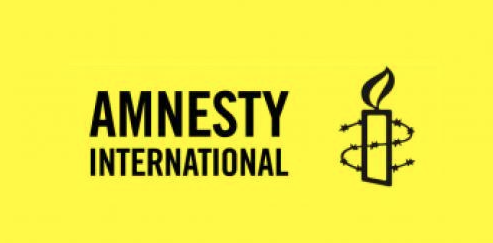Spiked batons, stun belts and leg irons are among the gruesome tools of torture which should be banned outright, Amnesty International said today, ahead of a crucial vote on a torture trade resolution at the UN General Assembly (UNGA) on June 28th.
“Every year governments attend and host international trade fairs where they can browse stalls selling horrifying torture devices – this secretive trade has gone unregulated for far too long. Torturers around the world have benefited from loose regulations which allow them to access all the latest technologies in inflicting pain and fear,” said Ara Marcen Naval, Deputy Director for Arms Control and Human Rights at Amnesty International.
Adopting the resolution would be a first step towards creating international laws to ban the trade in equipment which has no other purpose than torture. It would also be a chance to tighten regulations on equipment like batons and tear gas, which are regularly misused to crush peaceful protests.
“It’s time for states to send a clear message that they are committed to eradicating torture for good. We are calling on governments to adopt this resolution, and then work towards adopting regulations that will curb this business and protect people all over the world from the scourge of torture and ill-treatment,” said Ara Marcen Naval.
As well as calling for inherently abusive equipment to be banned, Amnesty is calling for states to strictly regulate the export of policing equipment to stop transfers to countries where it risks being used for torture, ill-treatment or other abuses.
The tools of torture
‘Tools of torture’ refers to a wide range of security and law enforcement equipment which could be used to torture, ill-treat or execute people. Amnesty International has documented how China is a major player in this industry, and found that the number of Chinese companies manufacturing his equipment has more than quadrupled in the past decade.
However, the use of tools of torture has been documented in all regions of the world, and many countries which ban their use still allow them to be promoted and sold on their soil. For example, in 2017, Amnesty researchers discovered illegal torture equipment including spiked batons, spiked electric shock riot forks, electric shock vests and heavy leg irons for sale by Chinese companies at Milipol, a military and police trade fair in Paris.
Domestic export bans on torture and execution equipment in many countries have restricted the torture trade in recent years; and in 2006 the EU introduced a regulation concerning the “trade in goods which could be used for capital punishment, torture or other cruel, inhuman or degrading treatment or punishment”. But no international regulation exists, which means that outside the EU torture tools are being manufactured, promoted, exported and imported with little global scrutiny.
In order to be fully effective, any legislation aiming to tackle this trade should distinguish between two types of equipment. It should ban inherently abusive equipment (such as spiked batons, neck cuffs, electric shock belts) while regulating equipment which may have a legitimate purpose but which is commonly abused for torture or other ill-treatment (such as tear gas and pepper spray).
Amnesty International has repeatedly documented how common law enforcement equipment can be used to torture or otherwise ill-treat people. For example, in the past month alone, law enforcement authorities in Hong Kong and Sudan have used tear gas against peaceful protestors in an excessive and abusive manner, often causing serious injury.
Amnesty International is calling on states to assess the human rights risks before granting authorisations of these types of equipment, in line with other trade control regimes of dangerous goods, like conventional arms.
Background to the resolution
The “Global Alliance to end the trade in goods used in torture and capital punishment” (Alliance for Torture-free Trade) is an initiative led by the EU, Mongolia, Cape Verde and Argentina, launched in September 2017.
On 24 September 2018, at the first Alliance for Torture-free Trade ministerial meeting, members committed to promoting and sponsoring a draft resolution, to be adopted by the United Nations General Assembly during its seventy-third session, entitled ‘Towards Torture-free Trade: examining the feasibility, scope and parameters for possible common international standards’.
The resolution will open up a process to gather States’ views on the scope, feasibility and requirements to establish common international standards for the import, export and transfer of goods used for capital punishment, torture or other cruel, inhuman or degrading treatment or punishment.
62 states are members of the Alliance and many other States are adding their support to the resolution.
****************************************
For more information or to arrange an interview, please contact:
Lucy Scholey, Amnesty International Canada (English), + 613-744-7667 ext. 236, lscholey@amnesty.ca













